Requiem for Rummy’s Old Europe: Deutschland
Germany Retreats into Medieval Superstition and Taboo
By Henry Johnston at Russia Today (RT)
Sidebar: Continuing the story of the astonishing suicide of Old Europe, now to Germany. The sadness of Lavrov was remarked at “the rage, intolerance and total absence of critical thought exhibited especially by the Europeans.” This dovetails poignantly into this piece… Europe is plunged into self-inflicted darkness. Germany’s situation is even more bleak than Italy’s. As the major losers of the very last world war, and savagely occupied, mindwashed into atomization and endless generational guilt and controlled to this day by green fanatics, they have even less leeway than proud Italy, and farther to fall.
I recommend this movie, “The Lives of Others” which details the methods of the East German Stasi. Germans have been rendered frighteningly passive, fearful of their own shadows, in perpetual grasping to maintain fleeting lifestyles, trite wokeness and triviality and green craze and adherence to long-gone western “liberal ideals.” Merkel and many of the post-1991 cadre are East German; their people may have lost in the unification transition, but their more adept and amoral nomenklatura arose to the great satisfaction of Anglo-America.
What unfolds for Germany is an even steeper fall than Italy, which had been gradually plundered, deindustrialized, and dismantled since 1970s. The bitterness and anger which this will predictably raise will be used to marshal the society into reaction and greater superstition and feudal fascism. Sad days ahead.
≈≈≈
“An abandonment of reason is among the symptoms of a nation suffering from a collapse in the prevailing narratives”
Bloomberg recently foretold the end of Germany’s days as an industrial power in an article that begins with a depiction of the closing of a factory in Dusseldorf. Stone-faced workers preside with funereal solemnity over the final act – the fashioning of a steel pipe at a rolling mill – at the century-old plant. The “flickering of flares and torches” and “somber tones of a lone horn player” lend the scene a decidedly medieval atmosphere.
Intentional or not in their inclusion of such evocative detail, the Bloomberg writers offer potent imagery for Germany – not only because the country is regressing economically but because its elites are increasingly guided by an atavistic force: the abandonment of reason.
As hard economic realities lay bare the futility of its utopian energy plan and the consequences of numerous terrible decisions mount, Germany is experiencing what Swedish essayist Malcom Kyeyune calls “narrative collapse.” The peculiar offspring of this, Kyeyune argues, is a turn toward ritual, superstition, and taboo. It is a malaise afflicting the entire West, but Germany is suffering a particularly acute case.
Kyeyune defines this as an occurrence “when social and political circumstances change too rapidly for people to keep up, the result tends to be collective manias, social panics, and pseudo-religious revivalist millenarianism.”
The abandonment of reason can be conceived of in various ways. Quite a lot of ink has already been spilled about the irrationality behind Germany’s fantastically improbable climate policy. Indeed, the quasi-religious verve with which this program has been rolled out speaks to something of a loosening of the country’s moorings. But as we will see shortly, the problem goes far beyond an attachment to unattainable policy goals.
Prominent German business executive Wolfgang Reitzle argued that for the government to deliver on its climate and energy policy, capacities for wind and solar power would have to be more than quadrupled, while storage and back-up capacities would have to be massively increased. Such a plan is “neither technically feasible nor affordable for a country like Germany,” Reitzle argues. What it is then, he concludes, “is simply insanity.”
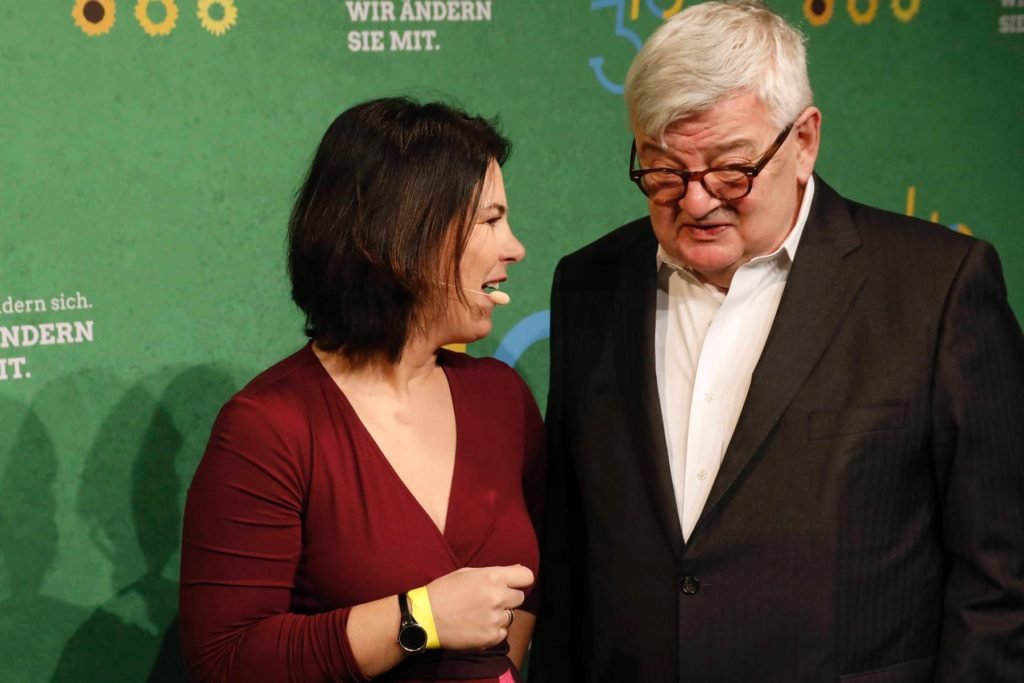
Annalena Baerbock and Joschka Fischer
Michael Shellenberger, in a piece for Forbes magazine in 2019, points out that the initial impetus for seeking to transition to renewables emerged from the idea that human civilization should be scaled back to sustainable levels. He cites German philosopher Martin Heidegger’s 1954 landmark essay ‘The Question Concerning of Technology’ and subsequent work by the likes of Barry Commoner and Murray Bookchin as espousing what emerged in the 1960s as a much more austere vision for the future of civilization.
Shellenberger concludes that the reason why “renewables can’t power modern civilization is because they were never meant to. One interesting question is why anybody ever thought they could.”
The cohort who suddenly began thinking they could is the German political and intellectual elite in the early 2000s. Gone was the bucolic environmentalism of the 1960s and in its place came an aggressive and utterly detached-from-reality agenda that was imposed with millenarian fervor.
Before circling back to the idea put forth by Kyeyune – that the German elite is now mired in superstition due to the onset of narrative collapse – we must back up for a moment and examine what animated Germany prior to Bloomberg’s flickering flares and melancholy horn.
Modern Germany has long been an object of admiration for the West’s liberal elite, upheld as the ideal incarnation of the post-Fukuyama ‘history-has-ended’ world where liberal democracy triumphed and ideological conflict is a thing of the past. Germany, a nation with a penchant for militarism and authoritarianism, had expurgated its past sins and humbly assumed its place in the grand liberal order, magnanimously refusing to translate its economic prowess into bullying of others.
The country’s status was enhanced even further when the US and UK went off the rails, as the elite saw it, with the populist rebellions of Donald Trump and Brexit. Germany, with its staid, consensus-driven, common-sense politics, was the ‘adult in the room’, in stark contrast to the Anglosphere.
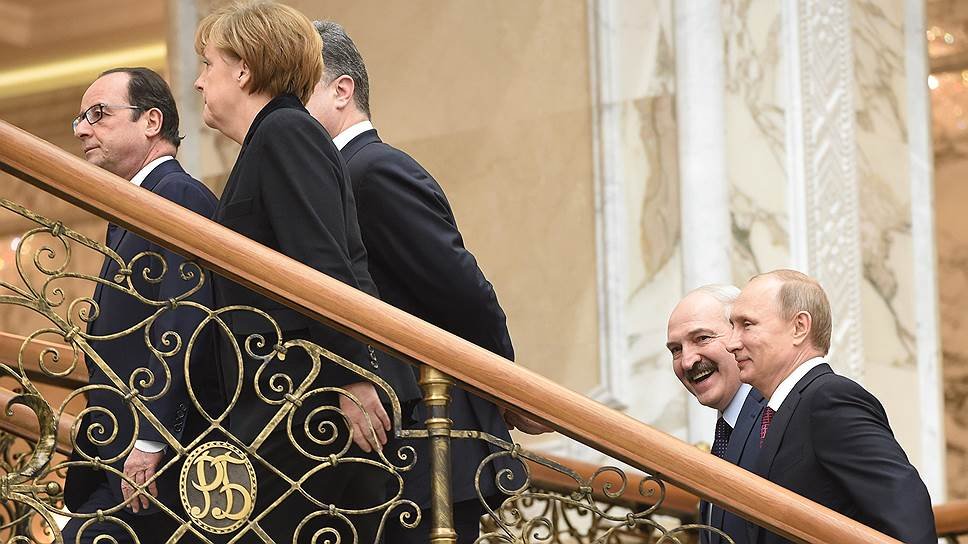
Meanwhile, its economy was humming. The hyper-globalization of the 2000s played right into Germany’s hands. It was a confluence of propitious global circumstances. China was growing at astronomical rates and needed cars and machines – Germany provided both. The expansion of the EU into Eastern Europe opened up new markets for German exports. Germany was prospering and its success was an important driver of economic development across Europe.
All of this helped foster what was perhaps the primary trait of the German elite during this time: a supreme confidence. It was this confidence that led Angela Merkel to famously assert “wir schaffen das” (“we can do this”) when confronted with the task of assimilating over a million migrants. It was the same confidence that led to the idea of jettisoning both nuclear power and coal at essentially the same time, an announcement that was met with a certain disbelief but also awe. “If anyone can do it, it’s the Germans,” was a commonly heard response.
However, the last few years have witnessed a shaking of that assuredness and unraveling of the prevailing narratives as Germany’s vaunted stability and prosperity have been challenged and the benevolent globalized world that nurtured it began fading. But narrative collapse, like many other forms of collapse, at first happens slowly and at the margins before being catapulted forward by some trigger into its more rapid terminal phase.
What was happening at the margins was that the economic model that sustained Germany over the past two decades came under increasing strain as China moved up the value chain and began importing less of Germany’s manufacturing output; it had also become a competitor in the automobile market. Meanwhile, Germany’s economy largely failed to diversify and has been slow to embrace innovation.
Likewise, doubts about the prospects for the energy transition had begun creeping in, again at the margins, long before the events of 2022. Germany has made little progress toward its 2030 emissions target, and it is laughably far behind in its aim of putting 15 million electric vehicles on the road by 2030. It has had to delay plans for the phase-out of coal, and in fact even as of 2021 coal still accounted for a quarter of electricity output. In other words, rather than effecting an actual transition, Germany had merely set up a clean energy system that ran parallel to the dirty one. The clean one spoke to the narrative while the dirty one still powered much of the country. This could not help but plant the seed of the cognitive dissonance that would later assume such bewildering proportions.
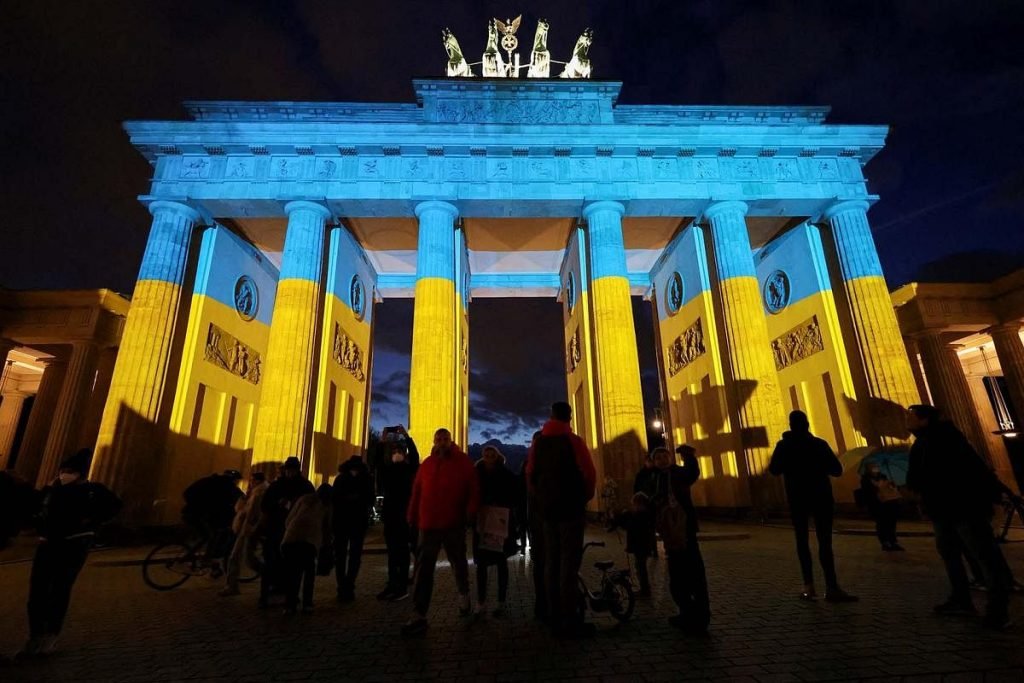
Berlin’s Brandenburg Gate in the colors of the Ukraine
Nevertheless, it was undoubtedly the start of the Ukraine conflict in February 2022 that has precipitated the cascade of failure we see now. Certainly, Germany has made many poor decisions during this time, not the least of which was its headlong plunge into supporting the US-led proxy war against Russia. Relatedly, watching Russia’s sanctions-ridden economy rebound and return to growth – while their own economy struggled – defied everything the German elites would have imagined. That in itself is a narrative-shaking development.
But perhaps more important than the particular economic and political setbacks has been a sense that the benevolent, familiar world of recent decades is receding ever faster and in its place is coming something ominous, as if from a strange and turbulent dream.
To quote Kyeyune again, it’s as if
“the future that they were promised – and that they promised the rest of us – was one of continued Western progress, prosperity, and geopolitical dominance. But that’s looking less and less plausible, and they neither like nor understand the future that is coming into view.”
For the elites, the world is crumbling around them and nothing is playing out as they had desired, which has deeply shaken their confidence.
The quotes from public officials and business leaders offered in the Bloomberg piece are bleak and a far cry from the “wir schaffen das” confidence of a few years back.
Stefan Klebert, the CEO of a company that has been supplying manufacturing machinery since the late 19th century, said: “To be honest, there is not much hope. I’m not really sure if we can stop this trend. Many things have to change quickly.”
Finance Minister Christian Lindner told a Bloomberg event earlier in February: “We are no longer competitive. We are getting poorer and poorer because we are not growing. We are falling behind.”
Volker Treier, foreign trade chief at Germany’s Chambers of Commerce and Industry, remarked: “You don’t have to be a pessimist to say that what we’re doing at the moment won’t be enough. The speed of structural change is dizzying.”
The last quote, a lament about the speed of structural change, is particularly telling and makes us recall Kyeyune’s assertion that when social and political circumstances change too rapidly for people to keep up, strange flora can sprout.
This sense of no longer being able to control events and the fear this has engendered have bred a sense of impotence among the European elites – a sort of ‘deer frozen in the headlights’ paralysis – with Germany at the vanguard of this. No longer confident that their actions can produce certain desirable outcomes, the elites have shed their sophisticated modern veneer and technocratic sensibility and retreated into symbolism and superstition.
In a way this should come as no surprise. It is an age-old human response to the lack of control – think about rain dances instead of irrigation – that once again confirms the words of George Bernard Shaw that “the period of time covered by history is far too short to allow of any perceptible progress in the popular sense of evolution of the human species. The notion that there has been any such progress since Caesar’s time is too absurd for discussion. All the savagery, barbarism, dark ages and the rest of it of which we have any record as existing in the past, exists at the present moment.”
As a result of this, actions, emptied of their utilitarian contents, come to be seen as inherently meaningful only if they conform to the prevailing superstitions and carry the necessary symbolism. The policies being pursued are thus detached from reason in the sense that they are no longer evaluated or even undertaken with an expectation of a particular outcome – in fact, the outcomes are often quite the opposite of the presumed intention, leading to all manner of absurdities.

The EU’s rush to approve an absolutely token package of sanctions by February 24 – the anniversary of the beginning of Russia’s military operation in Ukraine – is not being carried out with the slightest expectation that a motley assortment of obscure companies and third-tier public officials coming under EU sanctions will achieve any policy aims. The entire value of the endeavor is in its symbolism. Because the symbolism is ‘correct’ the action becomes important.
Germany’s Green Party, a leading voice both in the fanatical climate program and the anti-Russia camp, has in the last two years promoted policies that have directly led to an increase in the burning of coal in the country. This is certainly not an outcome the party would have ever lobbied for. But its actions no longer have anything to do with specific desired outcomes; rather they exist entirely in the mist-filled world of symbolism and, in the logic of this new age of superstition, are to be evaluated only in relation to their symbolic potency.
Kyeyune gives what may be the most vivid example of this principle at work. “Germany still has one functioning pipeline through the Baltic Sea but refuses to use it,” he correctly notes, referring to one line of Nord Stream 2 that was not damaged in the sabotage attack carried out in September 2022. “The problem is that the alternative approach to meeting its energy needs means buying liquefied natural gas… and some of this gas comes from Russia. In other words, Germany still buys natural gas from Russia, less efficiently and at a higher cost, in order to maintain a quasi-ritualistic prohibition against use of the pipeline.”
Meanwhile, he continues, a similar operation takes place with Russian oil, which is now sent to India or China to be refined before being imported by Europe. It is “as if the act of mixing it with other oil in a foreign refinery removes the evil spirits contained in it.” In other words, Russian oil must undergo some sort of purification process before it can enter the EU garden. European refiners, meanwhile, suffer, while all sorts of middlemen are enriched along the way, and consumers are left paying higher prices. There is not an ounce of economic logic to it – but we have now passed into a realm beyond economic logic.
Policies governing energy, the lifeblood of industrial civilization, are now subject to the tyranny of ritual, taboo, and superstition. Such is the predicament of the German elite as it seeks to navigate the country through a turbulent period of epochal transition. The abandonment of reason is quite a handicap in carrying out that job.
Addendum:
Venting about the dishonor of the German Government:
The Soviet Union lost 27m people during WW2 because of the Nazis. The Soviet Union made by far the biggest contribution of the Allied forces in defeating Hitler and eventually granted the reunification of East and West Germany…
— Kim Dotcom (@KimDotcom) March 2, 2024



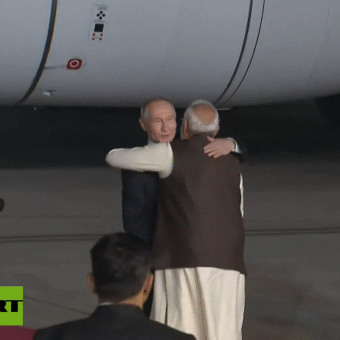


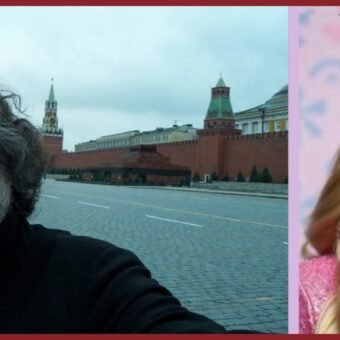
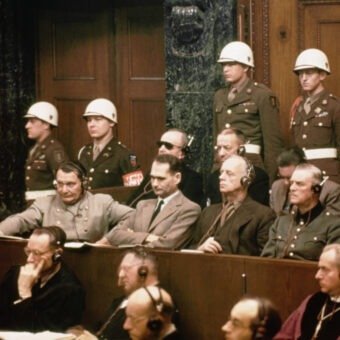


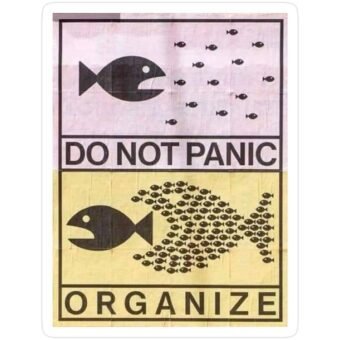


Remarking of the film only, it seems to me a fraudulent deception, for the sovereignty it teases is the occupation that began in 1945, slavery. Many would return to DDR. As we see, the unification was surrender to foreign diktat. How’s that eye, Olaf...
Germany has no sovereignty, as you well point out Joey. But then no country in the capitalist West has any sovereignty when you look closely. That includes the USA. That is really a major factor driving the cultural degeneration that appears to be swallowing up Western Civilization. Every Western country… Read more »
So journalists who think they are talking about countries like German as if it was independently choosing national suicide are parlaying a superficial analysis that leaves the real hidden cause unacknowledged. Easy safe journalism! I’ve also seen this same sort of convenient omission on the RT comment sections (the “Russian… Read more »
Yes, we do understand the point Joey. Superficial analysis on the part of journalists and commentators that distract from the deeper issues that are the real cause are, in my opinion, as much a part of the problem as the Ruling Class itself. They objectively serve the oppressive power. Plying… Read more »
“Remarking of the film only, it seems to me a fraudulent deception.. [an invitation to] surrender to foreign diktat.” well said! Yes indeed. The Piper played his tune so well. I had focused on the suffocating aspects of this seminal movie, one of most important ever made, along with Francis… Read more »
Thank you. Perhaps you know story from Asimov, The Dead Past? (calling Comrade Beria! Show me the man …) https://en.wikipedia.org/wiki/The_Dead_Past from wiki> As Foster and Potterley have learned, the chronoscope is inherently limited to recent times—but what if, instead of focusing it upon the distant past, it were tuned to… Read more »
Thanks. I instinctively avoided most Asimov as I avoided sci-fi, horror and dystopia. African life was enough! I preferred historical fantasy and such, openly frowned upon by my “avante-garde” western English teachers. For those could build imagination, hope and positive zeal in a child!
I did not favor his stories, but read with little discrimination, favoring whatever book chanced to my eye. The story Dead Past (I had to look it up) and the name of author were not associated in memory…just the theme of inevitable technical loss of privacy. Noting that this technical… Read more »
Tragic indeed, but I’m not wholly convinced it was self-inflicted any more than Epstein killed himself. I for one think that Germany was Epsteined by the US. The long-term aim of the US and UK, unless it was said before on this page, was to prevent German-Russian comity, Germany joining… Read more »
From the article –“Shellenberger concludes that the reason why “renewables can’t power modern civilization is because they were never meant to. One interesting question is why anybody ever thought they could.” While I have little sympathy for European Greens, who seem to be out of touch with reality, my question in… Read more »
That remark struck me too, Steve. I may try to answer it: Partly because it’s part of a bigger agenda that strives for lesser people and more poverty. I’m not convinced of the humanity of these triggers, far from it. It’s meant to only serve a few. (Frankly, I’m stupefied… Read more »
Rob, thanks for the follow-up.
Thanks, AHH – what an excellent summary of Germany’s economic and societal suicide,
The rant by that idiotic German MP says it all.
I used to live in Germany, have German in-laws and appreciate German culture for decades. The consistent current was practical rationality. “We can do it.” What is most scary now is that they no longer behave or think rationally! Led by not merely incompetents, but fanatics who will not deviate… Read more »